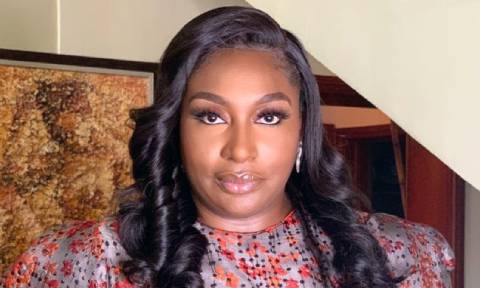
THE bubble seems to have burst for the fastly growing Nigerian film industry, fondly called Nollywood. When what was to become a stupendous revolution on the entertainment landscape began, not a few hard-nosed critics twitched their noses and predicted that the cream would soon melt off the cake.
Call it whatever, the boom is heading to become a doom. With the avalanche of movies produced, whetting the appetite of the expectant Nigerian movie lovers, the demand became so high. And trust the average Nigerian entrepreneur, the movie industry became the destination point for investors.
Like the situation in the music industry unheralded and selfish businessmen cum marketers stormed the industry, with so much cash and little or no finesse, movies of all kinds were thrown up and artistes, including the wannabes have their hands full.
Cash was rolling in big for all the stakeholders, actors, producers, directors, marketers, the executive producers (investors) and even it brought forth video rental clubs spreading all over the country.
The sun was soon to go down on the fortunes of Nollywood due to what observers attributed to the lack of proper infrastructures, laid down and strictly administered rules and regulations for all players of Nollywood.
At its height of euphoria, local movies truly enjoyed prominence and acceptance far beyond foreign movies, particularly, American film. Film lovers were not worried to buying local films for between N300-N400.
Good story lines and world class delivery and performances were the orders of the day. Not a few Nigerian A-list actors and actresses commanded six figures in appearance fees. They became hot properties in demand and expectedly grew in ego and pride.
Whilst their foreign counterparts in Hollywood and Bollywood enjoyed tremendous respect, corporate patronage and also commanded fat fees, the ego of the most Nigerian A-list actors began to crash down. Trust the money-mongering businessmen, who became glorified marketers, directors and executive producers, now calling the shots on who appears on what movie and gets paid how much.
At the height of the ego war between the real players and the investors, many popular artistes were summarily banned or suspended from some movie sets, ostensibly to curb the alleged excesses and demand of the artistes. Some even said it was to show the artistes who calls the shots.
After the debacle, the centre certainly could no longer hold for Nollywood scriptwriters and hapless producers became the crow cows and were made to churn out movies of all kinds. Now class, quality and delivery were no longer the rule of the game. The result: ‘half-baked artistes and unrepentant wannabes were being pushed down the throat of the public in the name of discovering new and fresh faces for Nollywood.
Today, the trend has changed and the supposed ‘real players’ of the movie business have decided to take their destiny into their own hands. Nigerian films are now shown on foreign stations, cable and satellite stations with reckless abandon.
According to the renowned scriptwriter and journalist, Ken Oghenejabo, the preference for cable stations, may after all be the solace for the once-heralded and much-maligned movie producers needed to make them have a sense of fulfilment for their creative works. This trend that began with movies produces by veteran film maker, Tunde Kelani, is the vogue.
Save for few Kenyan and Tanzanian short movies and documentaries and fleeting touches of Ghanaian movies, more than 70 per cent movies shown on M-Net Channels – Movie Magic 1 & 2; Hi-TV and the new Daarsat Cable, are Nigerian movies.
The backlash is that today, the prices of local movies have dropped sharply. And you would now see marketers, publicly auctioning their films on the streets for as low as N70-N100. Not even the artistes are enjoying the present scenario. Acting jobs are now far between and the fees, are far less impressive and attractive.
With movie marketers and producers exchanging verbal blows, the situation is not getting any better. While the marketers have continued to accused producers of mutual betrayal of first option of accepting to market these movies, movie producers on their own part would take nothing of such accusations.
Zeb Ejiro, a foremost movie producer and director, was quick to rise to the defence of producers by accusing marketers of indirect blackmail and holding the industry by the jugular.
“Yes, they come to you with the cash,” he disclosed. “But in recent times, their activities have done the industry more harm than good. They want to always call the shots and dictate what kinds of movies to produce and thereby disregarding your professionalism and experience in the business,” the vastly experienced producer said.
The present situation certainly call for a refrain or truce, as the real (artistes) no longer have the right frame of mind to strut their stuffs and yes, earn good money for their God-given talents and creative efforts. The once blowing fortunes of Nollywood need to be re-inflated and this is a must duty for all concerned stakeholders in the industry, before Nollywood loses its way, fortunes and respect in the eyes of the movie and indeed business investors.



















